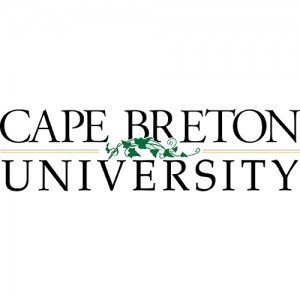Photos of university / #umontreal
The Bachelor's degree in Environmental Geography at the University of Montreal offers students an in-depth understanding of the complex interactions between human activities and the natural environment. This interdisciplinary program combines courses in physical geography, human geography, environmental sciences, and geographic information systems (GIS), providing students with a comprehensive perspective on environmental issues. Throughout the program, students explore topics such as landscape evolution, climate change, urban development, resource management, and environmental policy. Practical training is emphasized through fieldwork, GIS applications, and project-based learning, equipping graduates with the essential skills needed for careers in environmental consulting, urban planning, conservation, and sustainability development. The program also prepares students for advanced studies in geography or related disciplines. Interactions with faculty specialists and participation in research projects provide a dynamic learning experience, fostering critical thinking and problem-solving abilities. Additionally, students benefit from the university’s extensive resources, including state-of-the-art laboratories and a strong network of environmental organizations. Graduates emerge capable of analyzing spatial data, assessing environmental impacts, and proposing sustainable solutions to contemporary environmental challenges. The dynamic curriculum is regularly updated to reflect ongoing developments in geographic sciences and environmental issues. Overall, the Environmental Geography program aims to nurture environmentally conscious professionals dedicated to understanding and resolving the pressing ecological issues facing our society today.
The Environmental Geography Program at the University of Montreal offers students a comprehensive and multidisciplinary education in understanding the complex relationships between humans and their natural environment. This program is designed to provide students with a deep understanding of the spatial aspects of environmental issues, including the distribution of natural resources, the impact of human activities on ecosystems, and the policies and strategies that can promote sustainable development. Throughout the course of study, students explore various geographical techniques such as cartography, GIS (Geographic Information Systems), remote sensing, and spatial analysis to develop valuable skills for environmental assessment and planning. The curriculum covers a wide range of topics including climate change, biodiversity conservation, land use planning, environmental justice, and urban ecology, ensuring that graduates are well-equipped to address contemporary environmental challenges.
Students also have the opportunity to engage in fieldwork and practical projects that apply theoretical knowledge to real-world problems, fostering skills in data gathering, analysis, and communication. The program emphasizes an integrated approach, combining physical, human, and technical geography to provide a holistic view of environmental issues. In addition to coursework, students are encouraged to participate in research projects, internships, and collaborations with government agencies, NGOs, and private organizations dedicated to environmental sustainability. Graduates of this program often pursue careers in environmental consulting, urban planning, environmental policy-making, natural resource management, and research. The program aims to prepare students not only with academic knowledge but also with the critical thinking and problem-solving skills necessary for effective environmental stewardship and sustainable development practices. With a strong foundation in both theoretical concepts and practical applications, the Environmental Geography Program at the University of Montreal prepares students to contribute meaningfully to the global effort of tackling environmental issues and promoting sustainable societies.
The Bachelor of Environmental Geography program at the University of Montreal requires students to complete a comprehensive curriculum designed to provide a solid foundation in geographic principles, environmental issues, and spatial analysis. Students must successfully complete a total of approximately 90 to 120 credit hours, depending on the specific track and course selection. The program is structured to balance core courses, including introduction to geography, environmental sciences, and cartography, with specialized electives such as geographic information systems (GIS), remote sensing, climatology, and sustainable development.
Prerequisites for admission typically include a high school diploma with a strong record in sciences and mathematics. Once enrolled, students are expected to engage in both theoretical coursework and practical projects, encouraging the development of research skills and real-world application. Required core courses often cover physical geography, human geography, environmental management, and research methodology. In addition, students participate in seminars and fieldwork activities that enhance experiential learning, such as conducting environmental impact assessments and geographic mapping in outdoor settings.
The program emphasizes interdisciplinary approaches, integrating concepts from ecology, geology, urban planning, and policy analysis to prepare graduates for diverse careers in environmental consulting, urban planning, conservation, and governmental agencies. A significant component of the program is the completion of a capstone project or thesis, demonstrating the ability to synthesize knowledge and conduct independent research. To fulfill graduation requirements, students must also complete general education courses in humanities and social sciences, supporting a well-rounded academic background. Internships and cooperative education options are highly encouraged, offering students practical experience. Language proficiency in French and English is recommended, given the bilingual academic environment. Overall, the program aims to produce environmentally conscious geographers equipped with the analytical tools and ethical perspectives necessary to address complex environmental challenges.
The financing studies for the Geography Environmental program at the University of Montreal typically encompass a variety of funding options available to both domestic and international students. Students are encouraged to explore federal and provincial government grants, scholarships, and bursaries that are designed to support higher education. The university offers numerous scholarship programs based on academic excellence, financial need, and specific criteria related to the program or student background. For instance, the Quebec Government offers financial aid programs such as the Aide financière aux études (AFE), which provides loans and bursaries for eligible students pursuing university studies.
In addition to government aid, students can access university-specific scholarships awarded by the University of Montreal, which recognize outstanding academic achievements or support students facing financial challenges. Many of these scholarships are renewable annually and require students to maintain certain academic standards. External funding sources include private foundations, corporations, and community organizations that provide scholarships for students in environmental sciences or geography-related fields.
Part-time work opportunities are also a key facet of financing studies at the university. The university employs students in various roles across campus, providing an income source to help defray expenses. Additionally, cooperative education (co-op) programs may offer paid work placements integrated into the curriculum, allowing students to gain professional experience while earning income.
Students are advised to apply early for available funding and to consult the university’s financial aid office and scholarship database for up-to-date information. Budgeting and financial planning are recommended to manage tuition fees, living expenses, textbooks, and other study-related costs effectively. Overall, the University of Montreal provides a comprehensive array of financing options, aiming to make higher education accessible and affordable for its diverse student body interested in environmental geography.
The Bachelor of Environment (Geography) at the University of Montreal offers students a comprehensive foundation in the physical and human aspects of geography, emphasizing the relationship between humans and their environment. The program is designed to develop analytical skills and provide an understanding of spatial phenomena, environmental processes, and geographic information systems (GIS). Students engage in diverse coursework covering topics such as climate change, urban development, natural resource management, and sustainable development. The curriculum aims to prepare graduates for careers in environmental consulting, urban planning, government agencies, and non-governmental organizations, or for advanced studies in geography and related fields. The program combines theoretical knowledge with practical applications, encouraging research projects and internships to enhance real-world experience. Students benefit from the university’s state-of-the-art facilities and a faculty comprising leading experts in environmental geography. Additionally, the program promotes multidisciplinary learning, integrating insights from geology, ecology, sociology, and economics. This approach ensures that graduates are equipped with a holistic understanding of environmental issues and the skills necessary to address complex challenges related to sustainability and environmental management. Upon completing the degree, students are well-positioned to contribute to policies and initiatives aimed at environmental preservation and urban development. The University of Montreal also fosters an international perspective, often offering opportunities for exchanges and collaboration with global institutions, enriching the educational experience. The program emphasizes critical thinking, data analysis, and effective communication, skills essential for professional success in the environmental sector. Overall, the Bachelor of Environment in Geography at the University of Montreal provides a rigorous and dynamic education designed to prepare students for the demands and opportunities of the modern environmental landscape.





